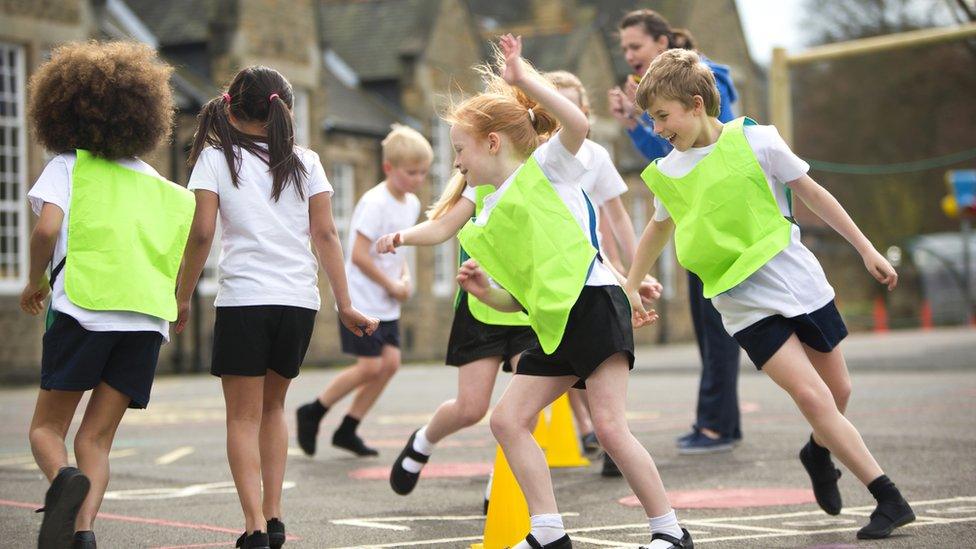NI Education: Most primary schools 'not providing enough PE'
- Published
"Outdoor play is still PE in many teachers' eyes."
About three-quarters of primary schools are not providing the recommended amount of physical education (PE) classes, according to the Education and Training Inspectorate (ETI).
Department of Education guidance is that pupils should have at least two hours of PE each week.
But the study found that 74% of primary schools were unable to do that.
The ETI report also said the pandemic had impacted significantly on PE in schools and children's activity.
Children were prohibited from playing outdoor sport for a number of months in early 2021 and PE in schools was also affected by lockdowns and limits on indoor gatherings.
The inspectorate's report found studies had shown that "many children have had significantly reduced levels of physical activity during the Covid-19 pandemic".
The ETI inspects schools, youth services and training in Northern Ireland and was asked by the department to carry out an evaluation of the provision of PE in primary schools.
A representative sample of 84 primaries were involved in the study and inspectors observed over 140 PE classes.
The inspectorate said it had also observed a lot of "good practice" when it came to teaching PE in primary schools.
It said that in most schools it had witnessed effective PE teaching and learning and some examples of "best practice".
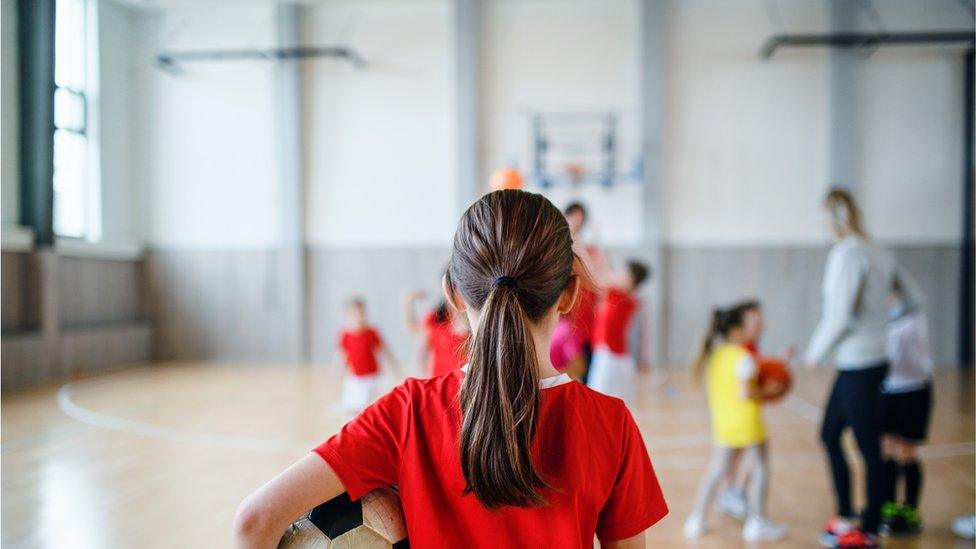
'PE may be the only structured physical activity some children get'
But the evaluation also highlighted a range of concerns about how, and how much, PE was taught and "significant areas" for improvement.
Over half of schools, the ETI explained, did not have a clear "whole-school" plan about how PE should be taught.
Department of Education (DoE) Chief Inspector Faustina Graham said PE may be the only structured physical activity some children get.
"An ambitious PE curriculum levels the playing field by giving all children the benefits of physical activity and sport," she said.
"This report aims to support our schools to raise the quality of PE for all children and young people."
She said the DoE will work with schools "to consider and act upon the next steps in the report".
After school activities
Ralph Magee, principal of Andrews Memorial Primary School in Comber, told BBC News NI's Good Morning Ulster that only 9% of primary schools had been visited "so it's a very small number even by their terminology, so I think we have to be careful about jumping to big conclusions".
"When I started teaching, schools were very much at the core of PE provision, nowadays children at our school are going to all sorts of after school activities," he said.
"Last year we took the decision that we would do all of our extra-curricular with staff who are doing it on a voluntary basis."
He said every teacher had a requirement to teach PE.
"But it's like any subject area, there are people who are more confident teaching maths and other teachers more confident doing music etc," he added.
"Timetabling those teachers who are more confident to deliver it is part of our job."
Northern Ireland mental health champion Prof Siobhán O'Neill said PE was "fundamental for healthy bodies and minds".
Allow X content?
This article contains content provided by X. We ask for your permission before anything is loaded, as they may be using cookies and other technologies. You may want to read X’s cookie policy, external and privacy policy, external before accepting. To view this content choose ‘accept and continue’.
'Never been more important'
The report also said the pandemic and restrictions had widely affected children's physical and emotional health and wellbeing.
"In particular, specialists report the prevalence of post-traumatic stress symptoms, sleep disorders and anxiety; and symptoms of depression have increased significantly for children, specifically relating to fears and concerns about the impact of the pandemic on their lives," it found.
The inspectorate said it had "never been more important" to provide children with high quality PE and sport.
But the ETI said schools often faced pressure to teach other subjects after lockdown which could have had an adverse impact on PE.
The evaluation also said there could be "an overemphasis on athletics and games to the detriment of dance and gymnastics" when schools depended on external organisations to deliver PE.
Additionally, over a third of schools involved in the evaluation were critical of how primary teachers were trained to teach PE during their university education, "particularly for those children with special educational needs".
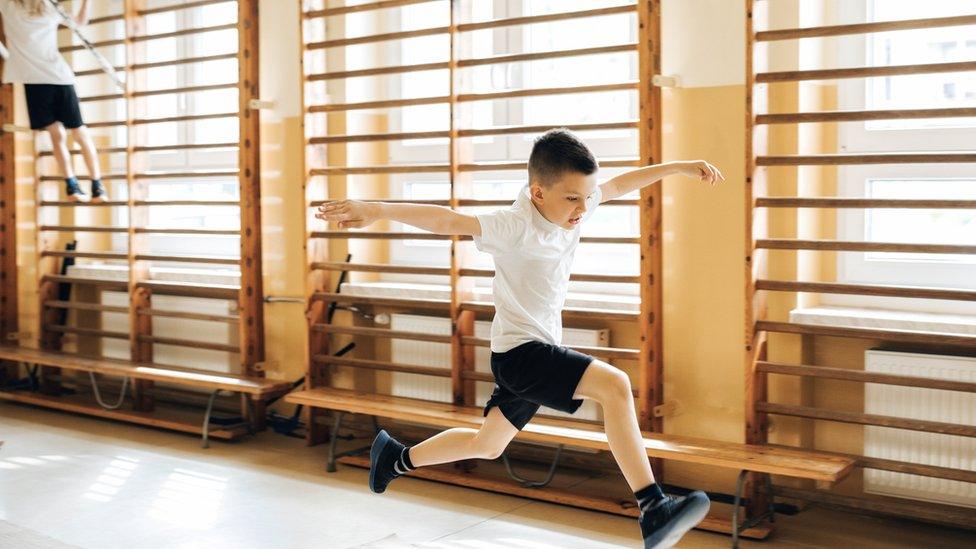
The report found almost a third of schools had "inadequate accommodation" to deliver the PE curriculum
The inspectorate also raised concerns about the facilities and space in some schools.
"This includes indoor facilities which are insufficient in size, and outdoor facilities which are limited by poor drainage, sloped/uneven ground and/or insufficient fencing," it continued.
In conclusion, the ETI said it was "critical" that a number of changes were made by the department and schools.
Those included having a trained and skilled teacher to lead a school's teaching of PE and more training of student teachers in how to deliver the subject.
The ETI also said the department had to address the problems many schools faced in having appropriate facilities and space for PE.
The World Health Organisation also recommends 60 minutes of physical activity a day for children.
But previous studies have suggested that children in Northern Ireland were less likely to meet that recommendation than in any other country in Europe.
Related topics
- Published8 November 2022
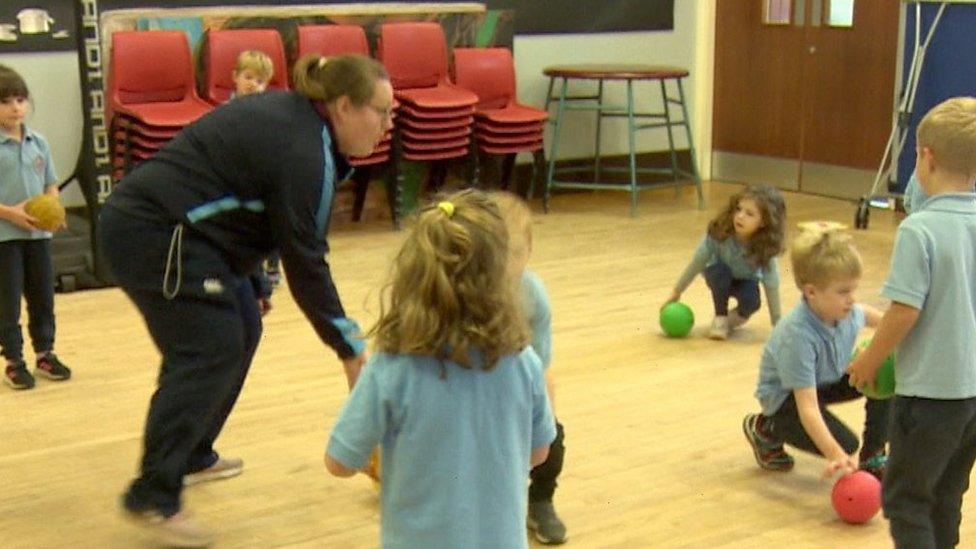
- Published23 February 2021
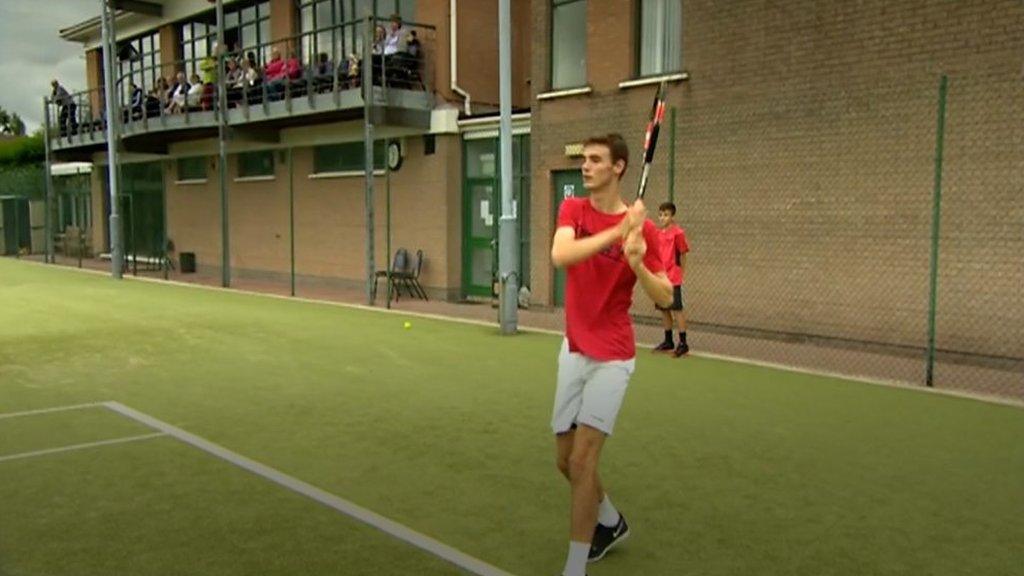
- Published9 August 2022
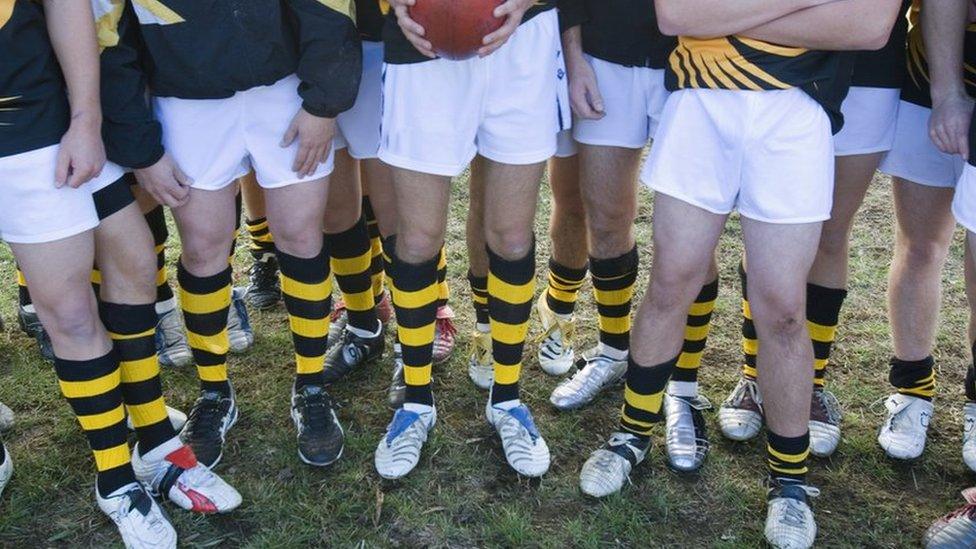
- Published4 June 2021
